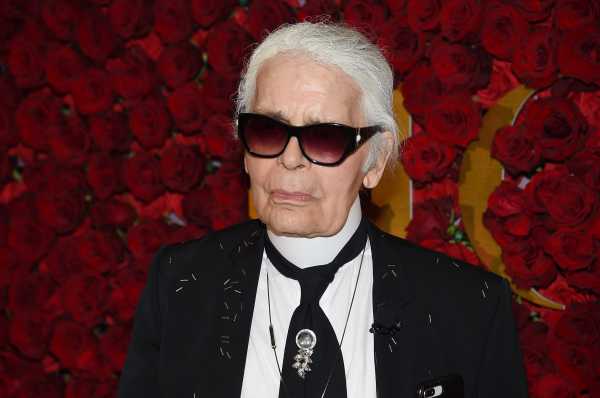
Karl Lagerfeld, the fashion icon and creative director at Chanel and Fendi, was known as much for his signature look — a white ponytail, dark sunglasses, and black jacket — as for being an incredibly prolific designer.
But his death on February 19 is a chance to reflect on another aspect of the 85-year-old’s legacy: His unique contribution to dieting psychology.
Lagerfeld, who was born in Germany, liked to say that he woke up one morning — November 1, 2000, to be exact — and decided he was no longer happy with his physique. Over the next 13 months, he shed 92 pounds, transforming his body from plump to pencil-like.

So how did he do it? Like many celebrities before him, he adopted a special diet, which he sold to the public in a 2005 book, The Karl Lagerfeld Diet.
Lagerfeld’s regimen — called the “Spoonlight Program” — involved a very low-fat, very low-calorie diet, washed down with plenty of Diet Coke. The designer favored fish, lean meat, fruit, skim milk, and vegetables, and avoided alcohol, cream, sugar, and other carbs. That meant bread, pasta, most cheeses, and red meat were “banned,” and one meal each day was a “protein sachet,” a supplement that helped cap his daily caloric intake at 1,200.
Lagerfeld, and his doctor co-author, Jean-Claude Houdret, also encouraged dieters to rely on a “homoeopathic granule” if they became too hungry, and avoid eating anything between meals.
Related
Karl Lagerfeld’s long history of disparaging fat women
But that’s far from the most unusual aspect of the weight loss approach Lagerfeld promoted. Even more interesting than the diet itself was its psychological framing.
His method reflected his generation’s weight loss ideology, which by today’s standards, seems uncomfortably image-obsessed and unnecessarily militant. Lagerfeld promoted the idea that dieters should embrace fashion and not health or wellness as a primary motivator: “There is nothing worse than looking longingly at clothes that you would like to wear but that are definitely too tight for you,” he wrote. He also suggested fellow dieters have to white-knuckle their way to a slimmer body through sheer willpower alone — an idea obesity researchers have now abandoned.
Fashion is “the healthiest motivation for losing weight,” according to Lagerfeld
Lagerfeld had no time for people who wanted to lose weight for health reasons. For him, losing weight was an aesthetic quest, about appearance only — and he encouraged others to follow his lead, calling fashion “the healthiest motivation for losing weight.”
For Lagerfeld, the fashion focus made the weight loss journey lighter, maybe easier, since “nothing in your life depends on it, apart from your wardrobe.” Of his decision to use clothing as a weight loss inspiration, he wrote:
While the turn to slim silhouettes on the runways in the 2000s was a major motivator, he continued, if loose clothes came back into fashion, “I may put on weight again, but for the moment, I don’t want to,” also acknowledging the pounds he shed indeed carried health benefits: “I work better than ever and I am never tired; I have seven undisturbed hours’ sleep a night — and without sleeping tablets.”
“It has to be a sort of punishment”
Today, dieters are typically reminded they don’t have to nix fat or feel constant hunger pangs to lose weight, and that the obesity-promoting food environment — not a collective failing of willpower — is widely viewed as the reason so many people now struggle to maintain a healthy body size. But Lagerfeld’s book promoted a much more severe view, as Amanda Fortini reported in Slate:
Researchers have discovered that relying on willpower isn’t actually a great tool for weight loss or changing your behavior. As Vox’s Brian Resnick has reported, people who are better at self-control have likely learned better habits and even enjoy the things — such as exercise, or eating lots of fruits and vegetables — others detest. (And their environments just may contain fewer temptations.) So it’s not the force of their iron will that helps them keep disciplined; it’s habit and preference.
Lagerfeld seemed to be one of those rare humans: “I think I adapted to the diet fairly easily because I have never smoked or taken drugs and have never drunk much alcohol,” he wrote. “In other words, you have to be a real bore like me for the diet to work.”
It’s also easier to have self-control — to focus on long-term rewards — when you’re wealthy, Resnick found. And Lagerfeld was certainly wealthy. He had a personal chef, and his book boasts recipes for soufflé, quail flambé, and roast guinea fowl. That combination — strong personality and immense wealth — might be the best explanation for Lagerfeld’s extraordinary weight transformation.
Sourse: vox.com






